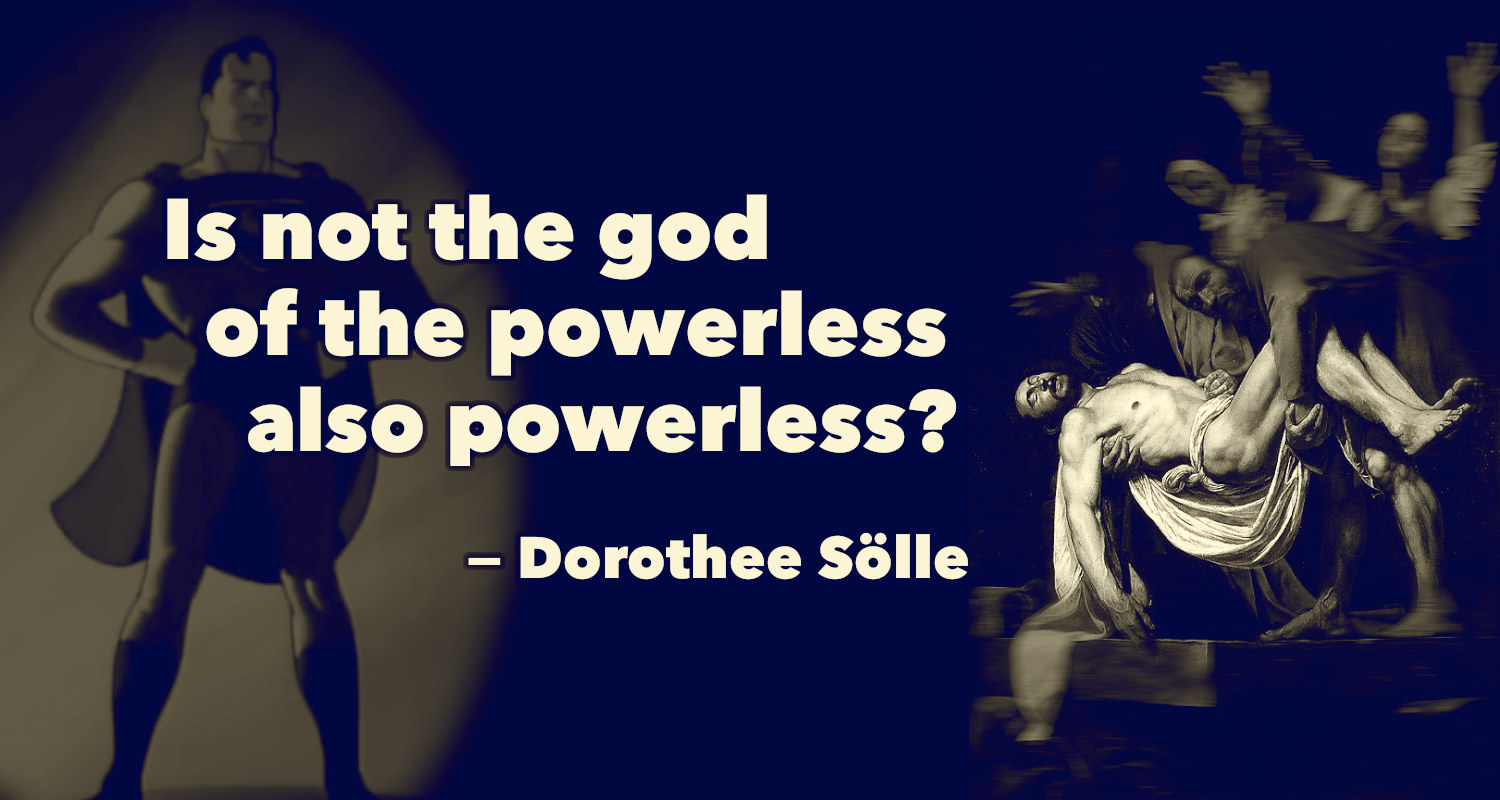
Dorothee Sölle argues that Greek philosophy (e.g. Aristotle) and scholasticism (e.g. Thomas Aquinas) has wrongly influenced Christians to think of god as a principality of power that is completely opposite of the powerlessness of the Crucified Jesus. Sölle believes this has happened by defining the attributes of god by philosophical terms such as omnipotence, omniscience, oneness, etc. instead of by the loving ways of Jesus. Jesus was not Superman, Hercules, Ares or another person of power, and it was precisely through this powerless of Jesus that the god of the Crucified One has been revealed.
In her book Thinking About God: An Introduction to Theology, Sölle explains the powerless of Jesus as follows:
"The Christian assumption that we recognize God most clearly in this figure of someone tortured to death goes completely against our fixation on power and domination. Christ appears in the Gospels as the man for others, has nothing but his love: no weapons, no magical tricks, no privileges. It is false christology to imagine Christ as a Greek god, a figure who can do anything, and who has a return ticket to heaven. That is really a denial of the incarnation. Christ refused to do miracles if they were asked of him as a proof. He refused to come down from the cross, and the original witnesses understood that quite clearly, when they mocked him and said, 'If you are the Son of God, come down from the cross and then we will believe in you' (Matt 27:42)." [1]
Sölle continues to explain that the power of the powerless is the love of Jesus, that Jesus commanded his followers to emulate as he first loved us (John 13:34). There are no other Saviors apart from the powerless love of Jesus, and all principalities of power like the Greek gods are false gods.
"For those who mocked him, God was identical with power and rule. But only capital with which he came into the world was his love, and it was as powerless and as powerful as love is. He had nothing but his love, and it was as powerless and as powerful as love is. He had nothing but his love with which to win our heart. Perhaps the abstractness of the search for the meaning of life can be overcome where we do not find the back-up of a father but the face of a human being at the center of power. In fact we are not saved by any 'higher being, god, emperor or tribune', as the Internationale puts it. No higher being can save us, because the only salvation is to become love. More than that it is not promised to us. All other deliverance is based on a mere shift from a bad state to a good state, to another place, to another time, which does not change us in the process. Such hope for power, for the intervention of an omnipotent superiority and unassailability, has always deceived people. God is not the extention of our false wishes, nor the projection of our imperialism." [2]
Sources:
1. Dorothee Sölle, Thinking About God: An Introduction to Theology. trans. John Bowden. (Bloomsbury T&T Clark: 1997). p. 187.
2. Ibid.
3. Images of Superman and the crucified Jesus were sourced from wikipedia.org.



Leave a comment